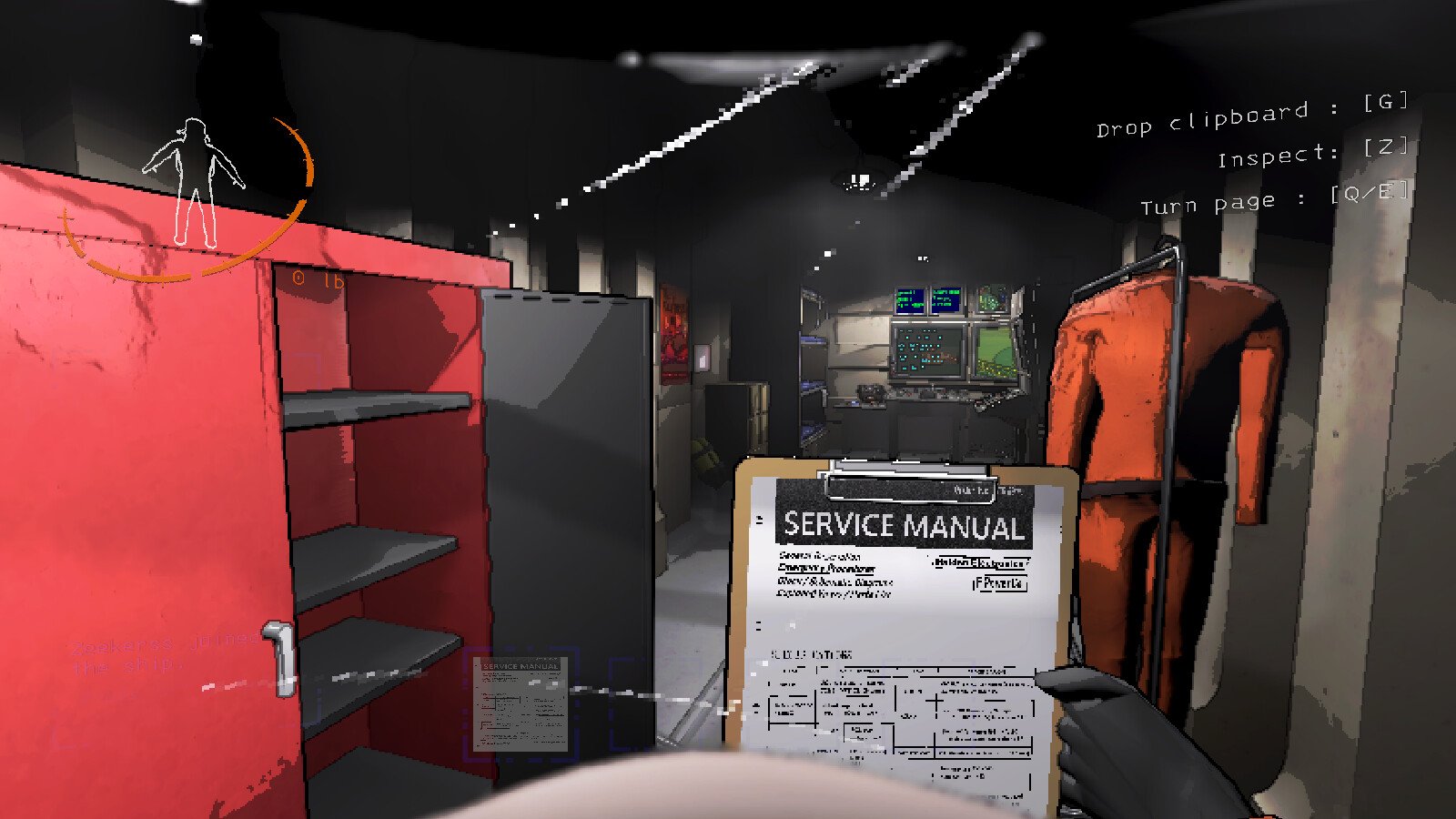Harry Mitchell Explains How Lethal Company Blends Horror With Laughter | Winter Spectacular 2023
For a game about walking through dark corridors only for the most creatively terrifying monsters to either snap your neck, eat you, or spin you up into webs, Lethal Company is, somehow, one of the funniest games I’ve ever played. It’s the perfect blend of comedy and horror, the type of scare that you’d laugh at in a movie theatre because the character is in such a horrible situation you can’t help but giggle, or the hysterics that follow jumping out at your loved one from behind a door. Breaking into viral popularity over the past few weeks, the co-op Steam title toes a line that makes you unsure whether to laugh or cry, and asks a bold question: do we need to take this genre so seriously for it to work?
Co-op gameplay and voice proximity, allowing you to hear your friends depending on their direction and surroundings in relation to your character, makes Lethal Company trendy with modern teens and young adults, especially at a low price point of $8. But it’s also the horror subgenres involved here that please a modern audience as opposed to traditional go-tos many Steam multiplayer horrors default to.
With games like Phasmaphobia, Devour or Ghost Watchers, you’re trawling a haunted house, a creepy school or a cultist village, some familiar scary movie backdrop we’re all familiar with. Lethal Company opts instead for a combination of various internet horror subgenres, from the worlds of creepypasta and SCP Foundation, with twisted monster concepts that detect your voice, move when you’re not looking, and trick the light in cold and abandoned science fiction facilities. Whether you’re a fan of these internet horror rabbit holes or not, they’ve clearly sunk into the collective consciousness enough to have a stronger effect and impact than perhaps the tired tropes that've been flogged since the 70s.
While Lethal Company isn’t the first to adapt internet horrors such as SCP by any means, I do think it captures something not many other modern horror texts are willing to lean into, and that’s the charming and funny elements of the genre. Satirising a mega-capitalist dystopian future where we need to find junk on planets to meet a profit quota taps into an existing gaming love for simulating blue-collar dangerous or tedious jobs, such as Deep Rock Galactic, space sims like Elite Dangerous or even just trucking sims like Euro Truck Simulator. But it also adds a delightful set of stakes to a horror game that isn’t just “survive” or “learn about these creatures”: the monsters are of no relevance, they’re just obstacles that might get you fired/end your meagre existence. When I play with my friends, we’ll often find ourselves leaving friends behind to die or dive into terrifying corridors alone covered in blood, telling ourselves over and over that “we need to make quota, it’s for the quota”. This motivation to engage with the horror turns it into something fun, prompts you to be braver, and makes you feel less like teens in a slasher movie and more like a work team on just another job.
When I think of cold, abandoned facilities with terrifying yet mesmerising monsters, it’s hard not to think of one of my favourite movies: John Carpenter’s The Thing. In Steve Neale’s essay from Liquid Metal titled ‘You’ve Got To Be Fucking Kidding!’: Knowledge, Belief and Judgement in Science Fiction, Neale talks about the just-mentioned line which a character says in The Thing after seeing one of his friend’s severed head grow a set of pus-squirting spider legs and scuttle out of the room.
The line ‘You’ve got to be fucking kidding!’ is a fictional remark from a fictional character. “On the other hand”, Neale argues, “it is what one might call both a ‘textual’ and an ‘institutional’ event: a remark addressed to the spectator by the film, and by the cinematic apparatus, about the nature of its special effects. It is a sign that the film is, at this point at least, ‘violently self-conscious’”1 The idea of being violently self-conscious, and the line itself from The Thing, often rattled around my head the more I played Lethal Company. Every time my walkie-talkie sparked to life with a friend explaining to me that if I looked away from this coil-headed metal mannequin I’d die, followed by the sound of something horrifyingly different thundering behind me, I thought to myself: you’ve got to be fucking kidding.
That awareness of its own content, mixed with the comedy-horror blend that makes you laugh at your own or your friends’ misfortune, makes Lethal Company so special. As mods spring up constantly, I notice that most aren’t to make the game easier or funnier, while there is a lot of that, but instead to new creepy mechanics, new monsters, and harder difficulties. Lethal Company is honest and up-front about the reality that horror is meant to be fun, and while you scream and feel your heart jump out of your chest, it’s meant to be followed by the sound of your dead friends bursting into laughter at your ridiculous demise. Usually falling down a hole.
1. Neale, S. (2007). ‘You’ve Got To Be Fucking Kidding!’: Knowledge, Belief and Judgement in Science Fiction. (S. Redmond, Ed.).Liquid Metal: The Science Fiction Film Reader.












